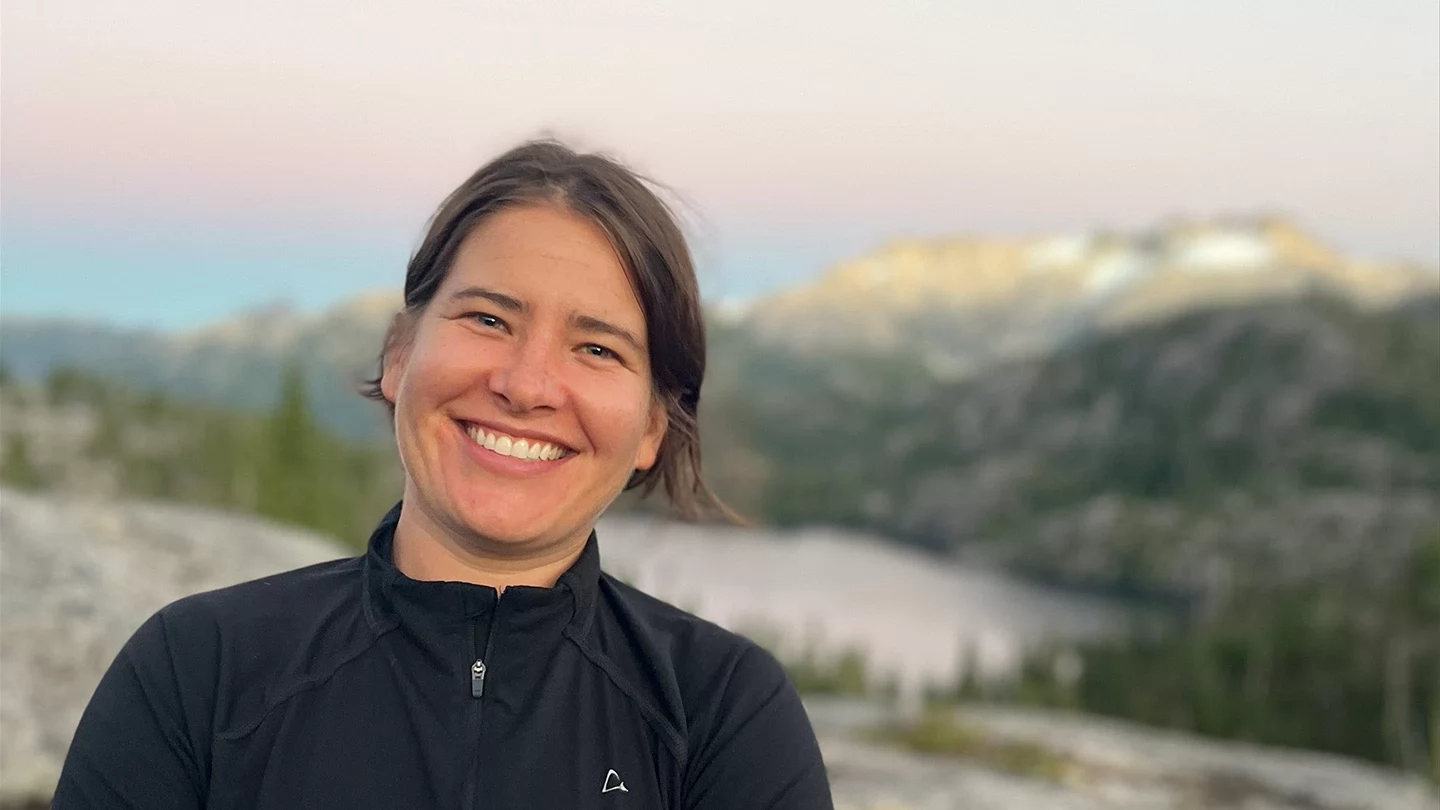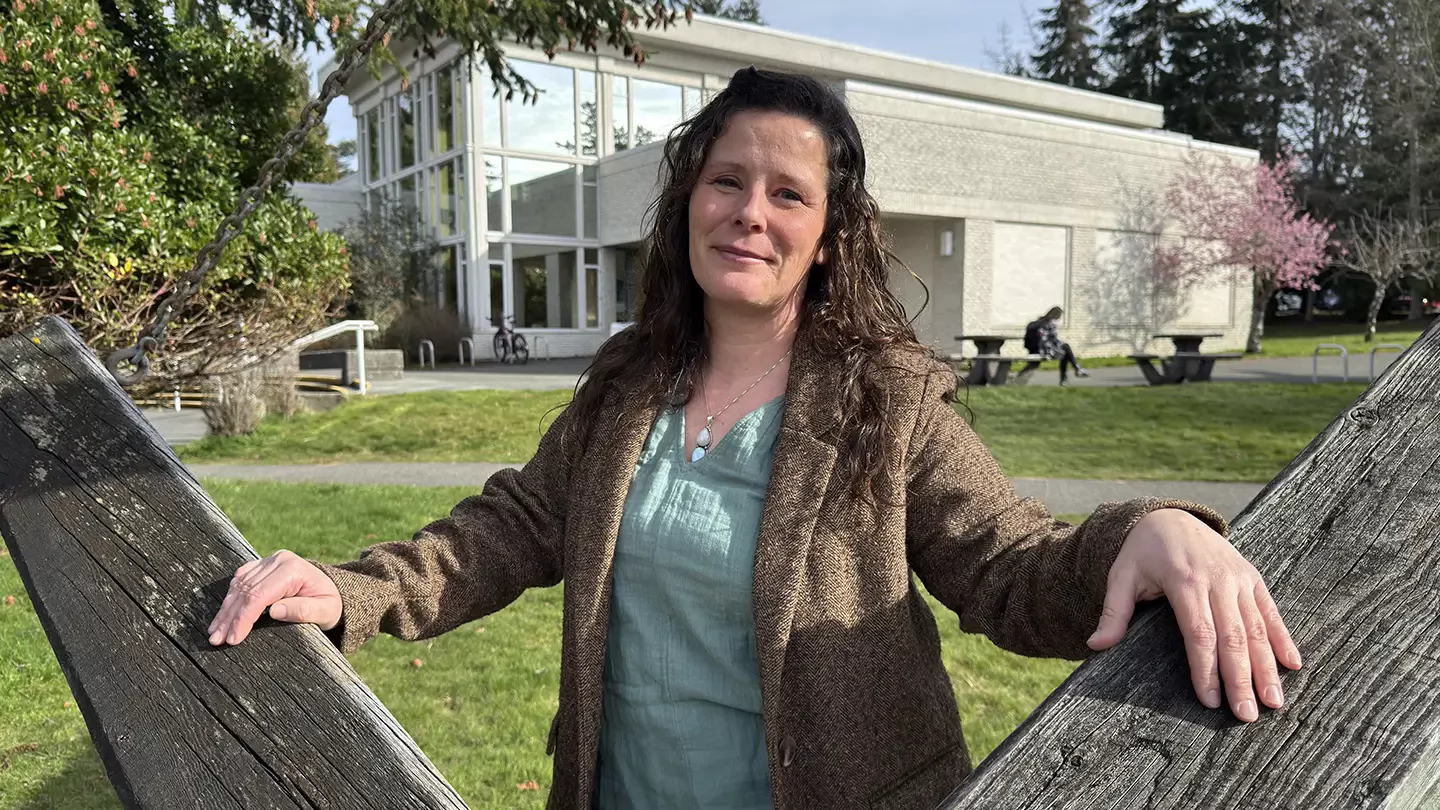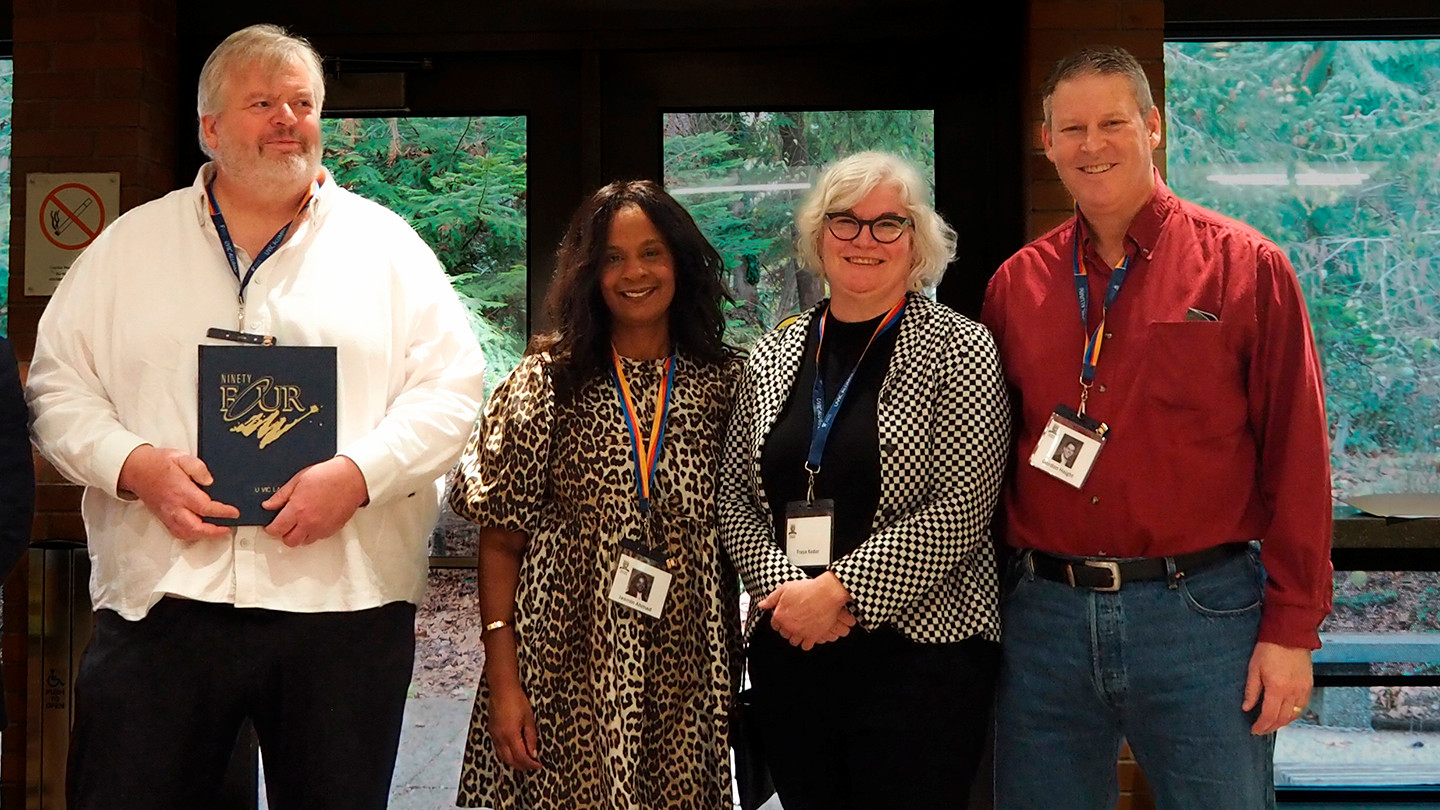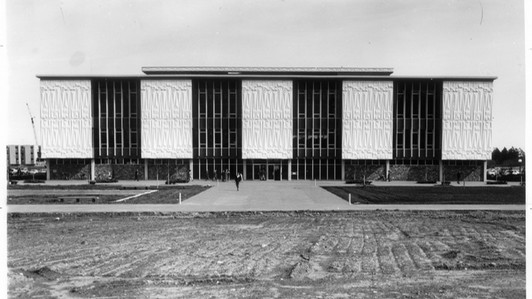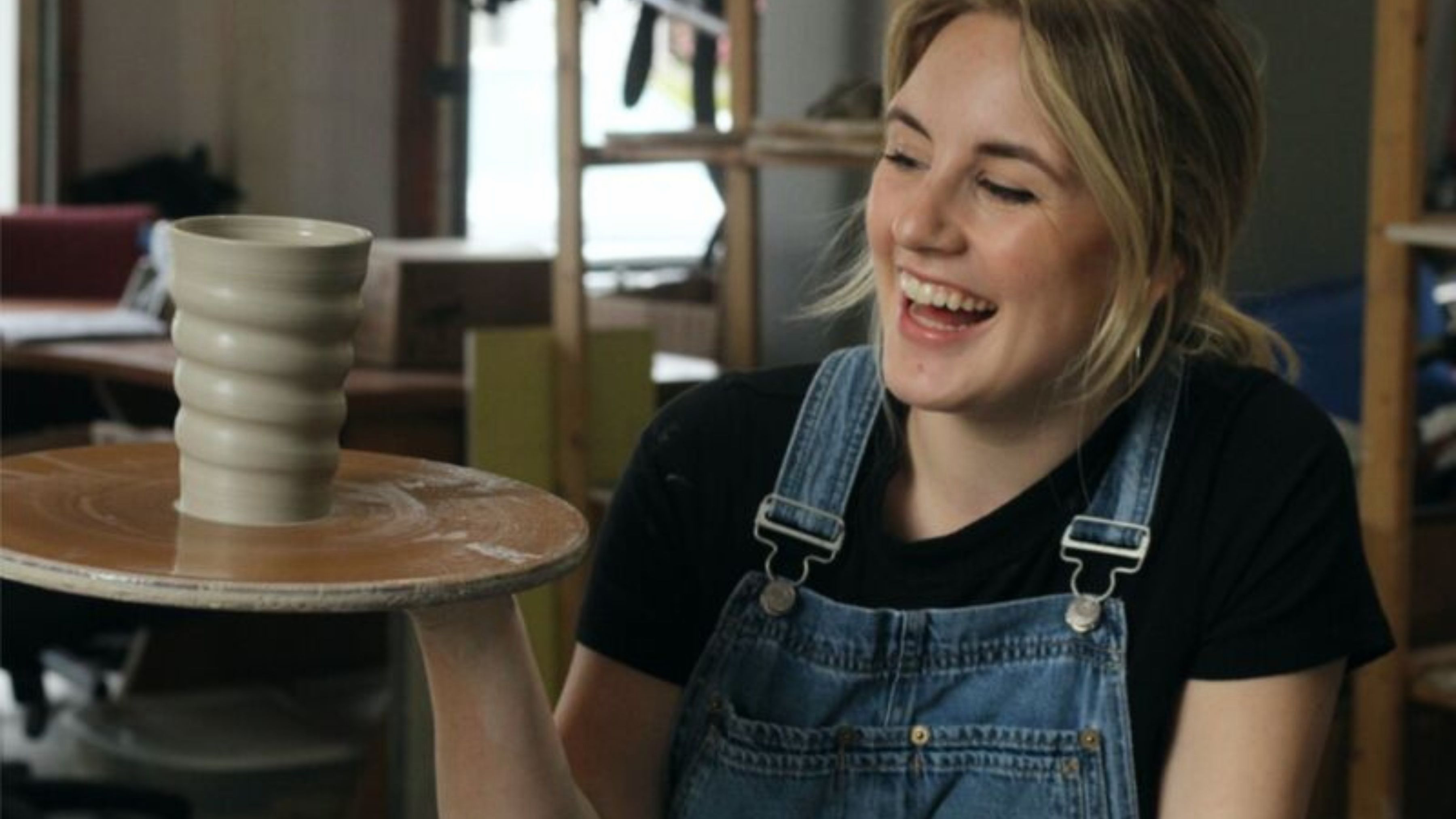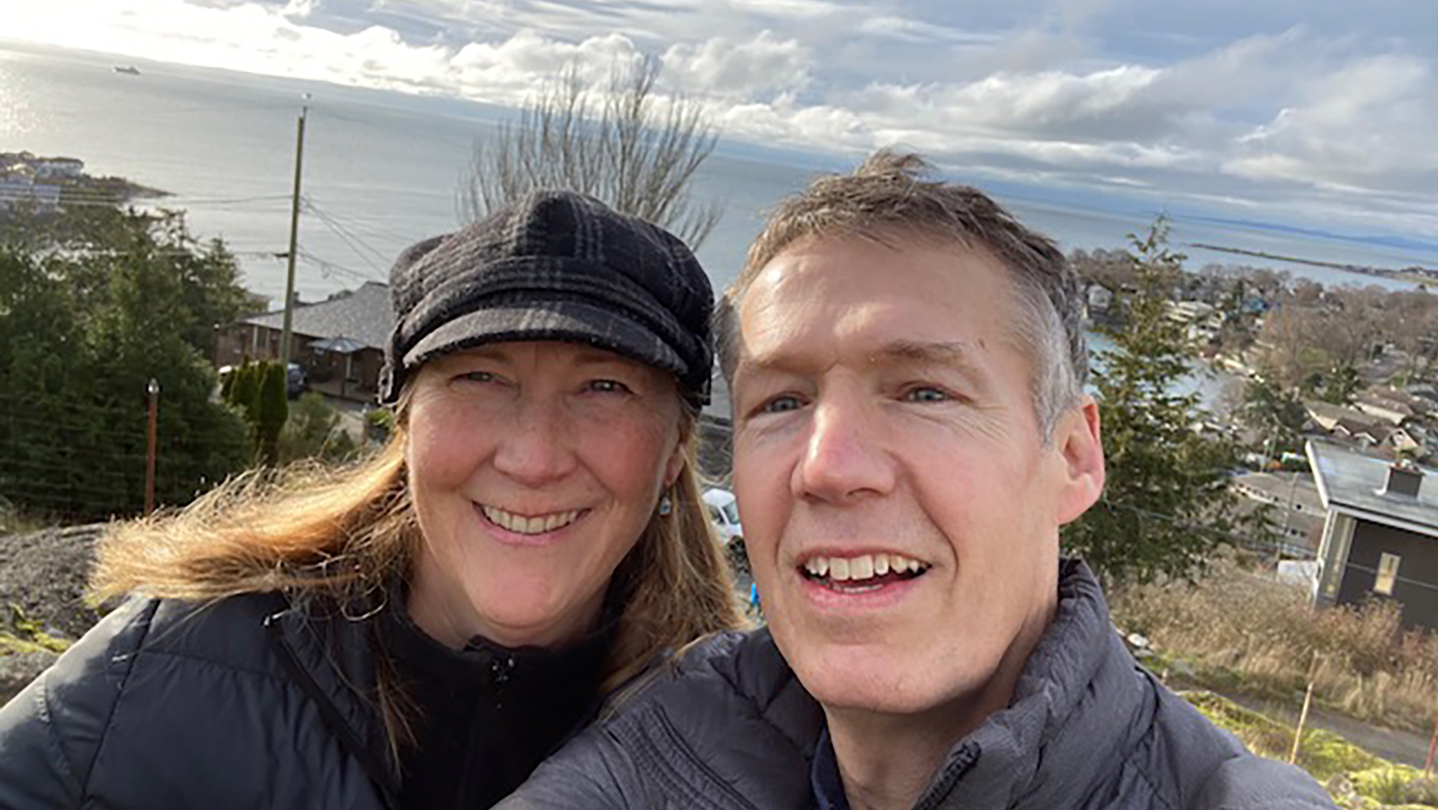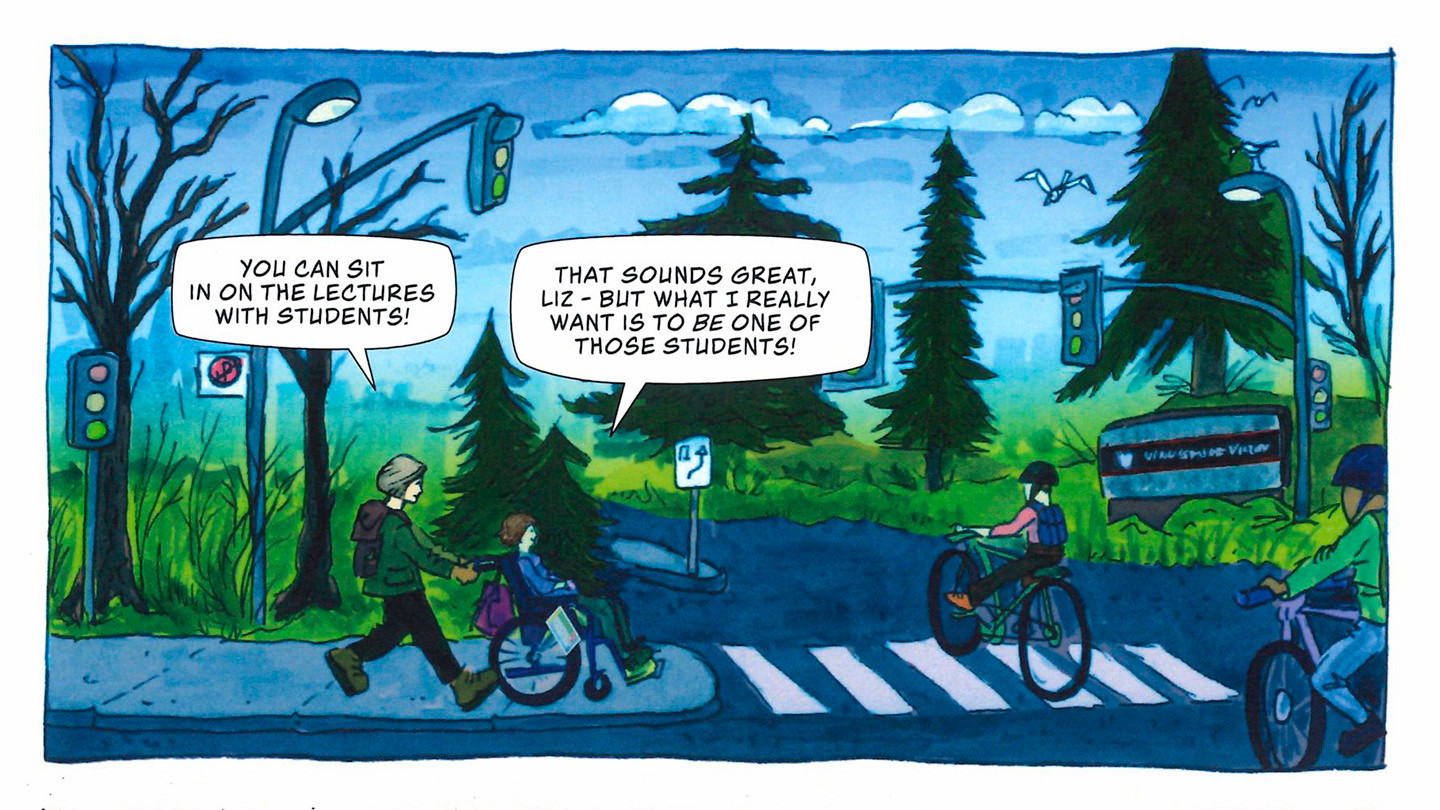Stories & news
Impact stories
Nurse practitioner grad champions better health
A donor-funded scholarship helped Jessica Newcombe complete the Master’s in Nurse Practitioner program and make a meaningful impact on her community.
Research chair promotes reconciliation through art and advocacy
Donor support allows Smyth Chair in Arts and Engagement Dr. Andrea Walsh to undertake research, education and public exhibitions that uplift Indigenous art and artists.
From deep-sea discoveries to chemistry lab innovations, UVic SERA scholars are leading the way
UVic's donor-funded Science Emerging Research Awards empower dynamic scholars like Moronke Harris and Ian Chagunda, enabling groundbreaking research, public engagement and mentorship opportunities.
Harnessing ocean waves to power remote communities
A $1 million grant from TD Bank Group is advancing research at UVic on transforming wave power into electricity. The ambitious project led by the Mowachaht/Muchalaht First Nation (MMFN) and...
Emergency funds in a crisis moment can rescue an educational journey
The timing of several significant financial costs threatened to derail Beth’s degree journey, but a donor-supported student emergency fund allowed her to continue the semester.
View all stories about giving
Donor spotlight
Supporting the next generation of lawyers
The UVic Law Class of ’94 celebrated their reunion by raising funds together for a meaningful student award.
60 years of the McPherson Library
How donors have helped build and enrich UVic Libraries over its 60-year history.
Supporting the next generation
UVic alumnus Georgi Ignatov, MBA ’00, who is originally from Bulgaria, built a successful supplement company. He is now helping other young entrepreneurs on their journey.
Celebrating the impact of eight years of partnership with Coast Capital
Since 2016, the Coast Capital Innovation Centre at UVic has supported more than 1,600 students and 300 ventures, contributing to the local economy, region, and even our planet. The Coast Capital...
Allyson Hadwin
Allyson Hadwin is a monthly donor to the UVSS food bank and a professor in the Faculty of Education. She is passionate about student success and ensuring they have the tools, resources, and support...
View all stories about giving
Legacy donors
Claire and Will Cupples
UVic alumni and scientists Claire and Will Cupples pledged $2 million to support a new Life Sciences Innovation Fund.
Living with intention and giving with purpose
MA grad Vivian Binnema believes it’s never too early to leave a legacy. Her planned gift to UVic reflects the values that guide her life today.
Wings on my Wheels
The graphic biography, Wings on my Wheels, memorializes the story of UVic donor Donna Pistell, who attained her dream of attending UVic to study anthropology while in her forties.
View all stories about giving

